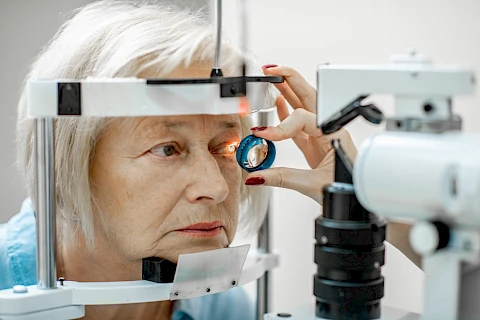
Diabetic retinopathy is a condition that affects the eyes and can lead to vision problems or even blindness. Understanding this condition is crucial for seniors, especially those living with diabetes. It helps them take steps to prevent serious eye damage. This guide is designed to educate seniors and their caregivers about the stages of diabetic retinopathy, highlighting the importance of regular eye exams and close communication with healthcare providers.
What Is Diabetic Retinopathy?
Diabetic retinopathy is a complication of diabetes that affects the eyes. It is caused by damage to the blood vessels in the retina, the part of the eye that senses light and sends signals to the brain. When these blood vessels are damaged, it can impact how well you see. New, weaker blood vessels may sometimes grow, leading to additional problems.
Stages of Diabetic Retinopathy
There are four main stages of diabetic retinopathy, each with its own symptoms and risks. Understanding the four stages can prepare seniors and caregivers for the symptoms they bring.
Mild Nonproliferative Retinopathy
In this early stage, small areas of swelling occur in the retina's blood vessels. There might not be noticeable vision changes at this point. However, early detection during this stage is crucial, as it helps manage the condition before it worsens.
Moderate Nonproliferative Retinopathy
As the condition progresses, the swelling and distortion of the blood vessels may increase. During this stage, more blood vessels become blocked. You might begin to notice changes in your vision. Regular monitoring is essential to manage this condition effectively.
Severe Nonproliferative Retinopathy
In this stage, more blood vessels become blocked, depriving the retina of its supply. This signals the body to grow new blood vessels, which can lead to further complications. The risk of progression to the proliferative stage is high, so careful observation and treatment are essential.
Proliferative Diabetic Retinopathy
This is the most advanced stage. New blood vessels grow in the retina and into the vitreous, the gel-like fluid of the eye. These new vessels can leak blood, causing severe vision problems or blindness. Treatment at this stage is urgent to prevent significant vision loss.
Importance of Regular Eye Exams
Regular eye exams play a vital role in the early detection and monitoring of diabetic retinopathy. Exams help eye care professionals spot changes before symptoms become severe, allowing them to manage the condition effectively. Seniors should aim to have eye exams at least once a year, but those with diabetes might need them more frequently. These check-ups can help prevent serious complications and protect your vision.
Working With Eye Care Professionals
Close collaboration with your eye care professionals is necessary to develop an effective management and treatment plan. They can tailor a personalized plan that includes treatments such as laser surgery, injections, or medications to prevent further eye damage. Open communication with your healthcare provider helps adjust the treatment plan as your condition changes. Follow-up appointments and consistent communication are key to maintaining healthy eyes.
Are You Living With Diabetic Retinopathy?
Understanding the stages of diabetic retinopathy can help seniors take proactive steps to protect their vision. Regular eye exams and working closely with eye care professionals are essential in managing this condition. Prioritizing your eye health is crucial.
If you or a loved one needs support, contact us. Senior Helpers of Polk County serves Lakeland, Winter Haven, Bartow, Auburndale, and Haines City. We can provide assistance and resources to ensure the best care for your eye health needs, including chronic disease care for seniors living with diabetes.